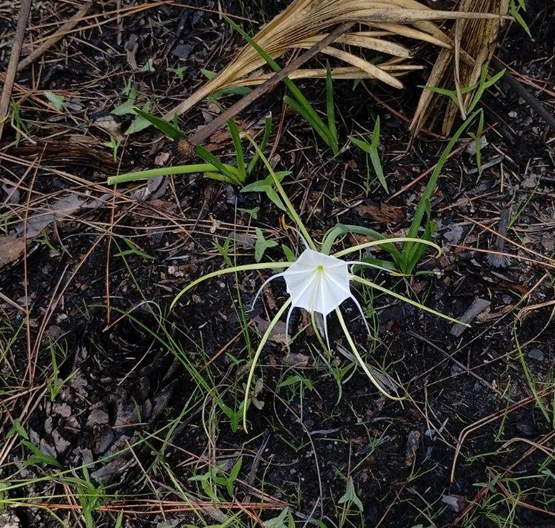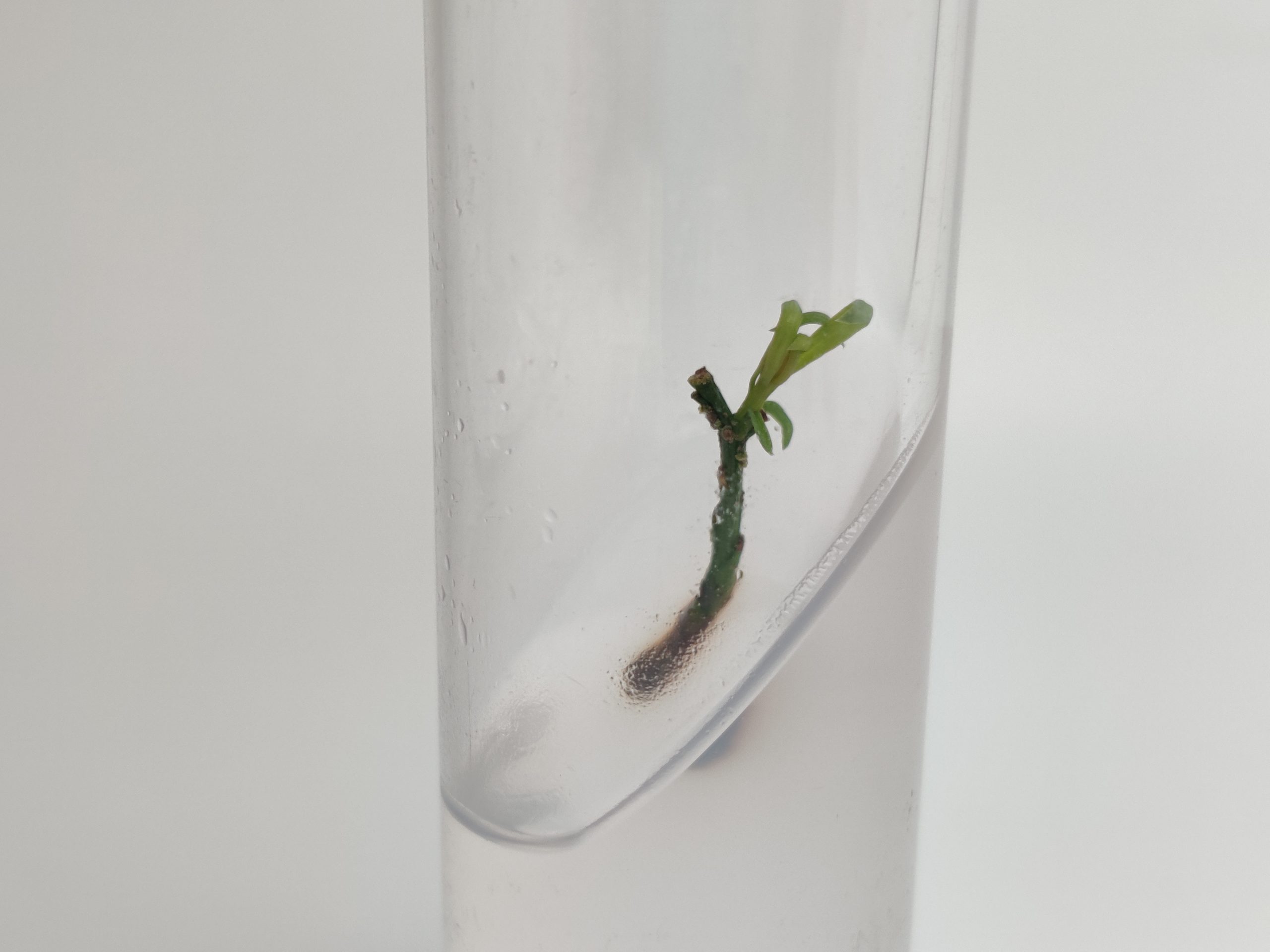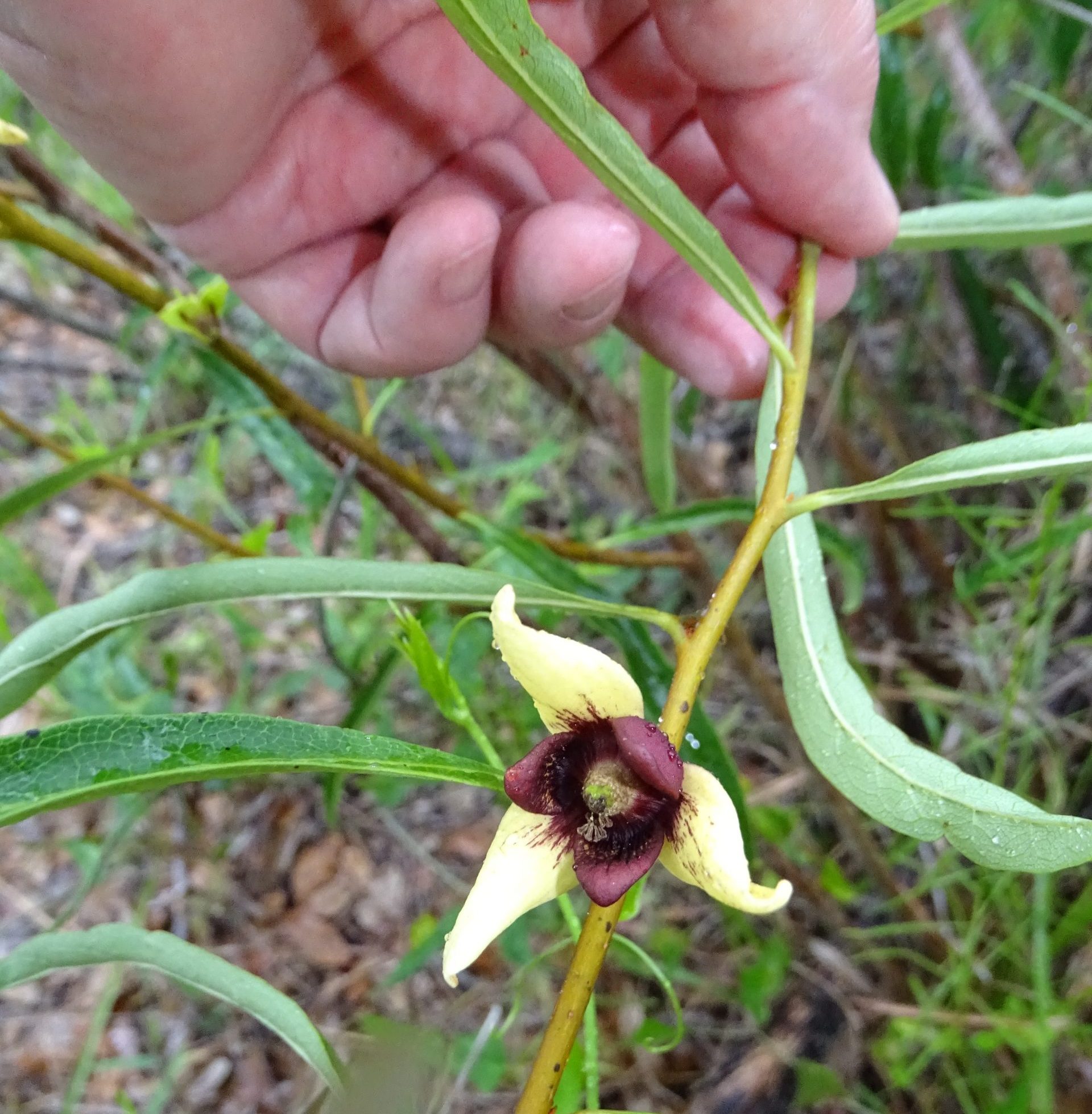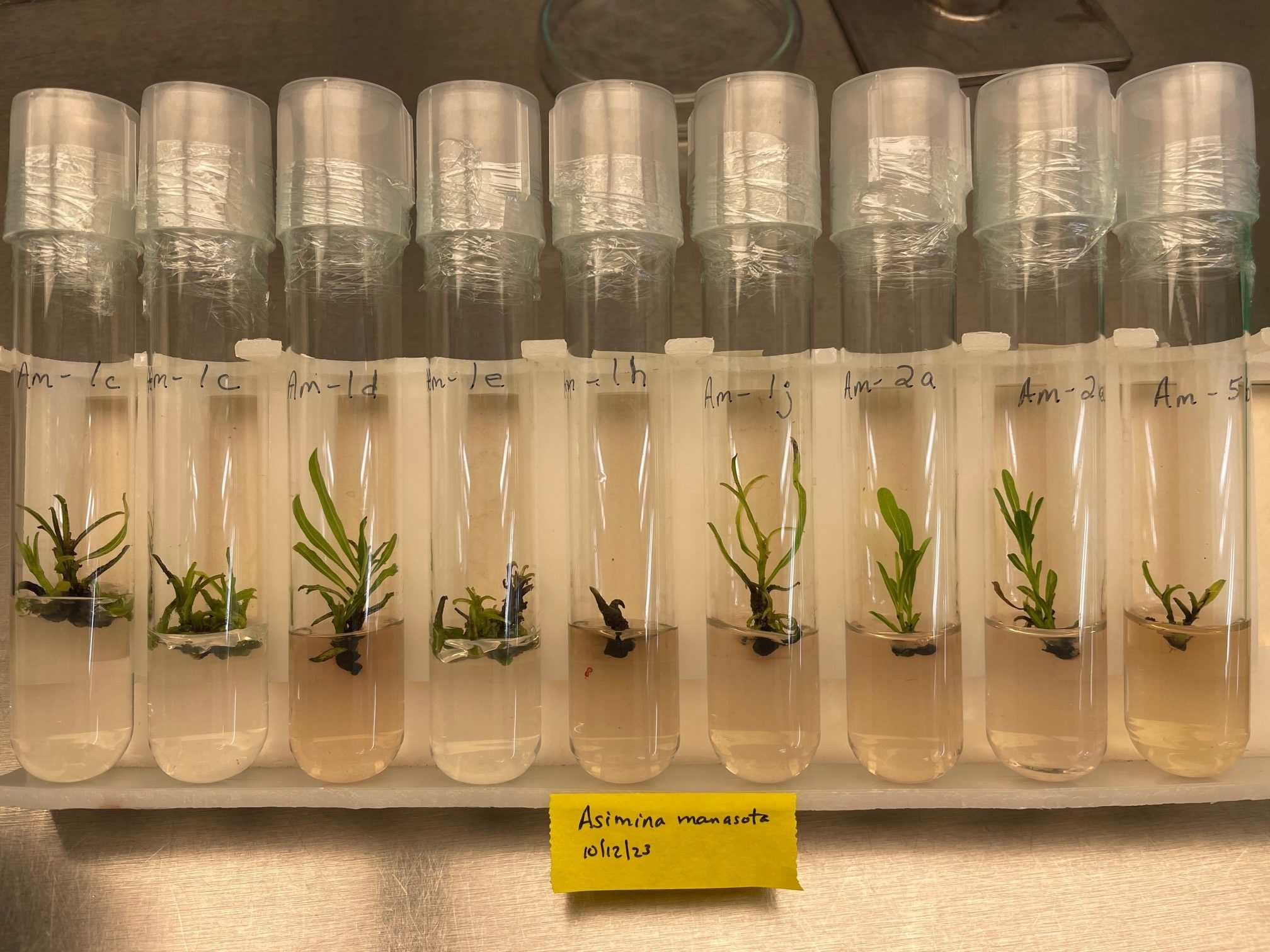Florida Plant Rescue: Conserving Exceptional Species in the Sunshine State
The Florida Plant Rescue (FLPR) initiative’s ultimate goal is to secure all of the state’s rare plant species in conservation collections. For most species, this means traditional seed collection and banking. However, some species have seeds that don’t tolerate orthodox seed banking methods, or seeds whose behavior is unknown. A critical aim of FLPR involves establishing conservation protocols for these exceptional species, and each year FLPR partners are invited to propose exceptional species curation projects.
Many factors are considered when proposing exceptional species projects, including existing information on the species’ storage habits, storage behaviors and established protocols for closely related species, research necessary to establish methods for the target species, and plans for curation of the conservation collection. Since the initiative’s formation, three exceptional species projects have been carried out by FLPR partners, helping to inform storage behavior and develop storage protocols for three rare Florida plants and their relatives.

In 2022, CPC funded Atlanta Botanical Garden (ABG) to undertake an exceptional species curation project for Florida Yew (Taxus floridana), a narrow endemic that produces large, recalcitrant seeds intolerant of the drying required for orthodox storage. Using their extensive knowledge of the closely related Florida Torreya (Torreya taxifolia), ABG staff developed a protocol for ex situ propagation of Florida Yew and successfully established wild-provenanced cuttings in their conservation greenhouse. ABG staff have also established an in vitro tissue culture protocol for Florida Yew, opening the door to more exciting conservation work for the species. Next steps for this project involve using material from established plants from the cuttings collected in 2022 to initiate new in vitro cuttings.
Last year saw two new exciting exceptional species projects, one focusing on Manasota pawpaw (Asimina manasota) from Marie Selby Botanical Gardens (MSBG) and another from Naples Botanical Garden (NBG) aimed at the conservation of Punta Gorda spiderlily (Hymenocallis punta-gordensis). MSBG’s work with Manasota pawpaw, a narrow endemic from the central west coast of the state, targeted a genus well accepted to require exceptional methods for long term storage.
In partnership with the Lindner Center for Conservation and Research of Endangered Wildlife at the Cincinnati Zoo and Botanical Garden (CREW), MSBG staff collected immature shoot tissue from wild individuals of the species to be grown in tissue culture, processed, and cryopreserved. Armed with experience establishing protocols for related species, CREW staff successfully grew three germplasm lines from the material collected in the wild by MSBG staff in 2023! The MSBG team aims to collect tissue from Manasota pawpaw in situ again this year, in the hopes of further tissue culture propagation and long-term storage in cryopreservation.
Naples Botanical Garden’s work with the endemic Punta Gorda spiderlily entailed extensive scouting to locate the 4-inch-tall lily on the Fred C. Babcock/Cecil M. Wildlife Management Area, where they were able to collect 29 seeds representing 11 unique maternal lines. This species naturally occurs in seasonally inundated areas, where seeds are often dispersed in water, and are intolerant of drying. The wild-collected seeds were brought back to NBG, where staff germinated seeds and established seedlings in the nursery at a high success rate. These established plants will be maintained as a living collection and used for seed bulking, allowing NBG to produce more seed from the 11 maternal lines and establish more plants, with the goal to use material for tissue culture and cryopreservation in the future.

The detailed findings reported by partners conducting exceptional species projects expand the initiative’s collective knowledge of exceptional species curation, contributing to each focal species’ conservation as well as to our overall understanding of the myriad of methods applicable for species unable to be traditionally seed banked. As FLPR continues to secure Florida’s rare plants in conservation collections, the initiative also continues to share and expand upon conservation knowledge. We look forward to the successes that 2024’s collection season will bring to the ambitious initiative, stay tuned for news on future exceptional species projects!
-

Taxus floridana showing new axillary buds in a test tube on June 12, 46 days after inoculation. Photo credit: Qiansheng Li. -

Asimina manasota (Manasota pawpaw) is a narrow endemic documented from 2 Florida counties. This species has been targeted for ex situ conservation as part of the Florida Rare Plants Initiative. It is an exceptional species that will require methods other than traditional seed banking. Photo by Bruce Holst. -

Asimina manasota plants growing in vitro at the Lindner Center for Conservation and Research of Endangered Wildlife at the Cincinnati Zoo and Botanical Garden (CREW). Photo credit: Valerie Pence.